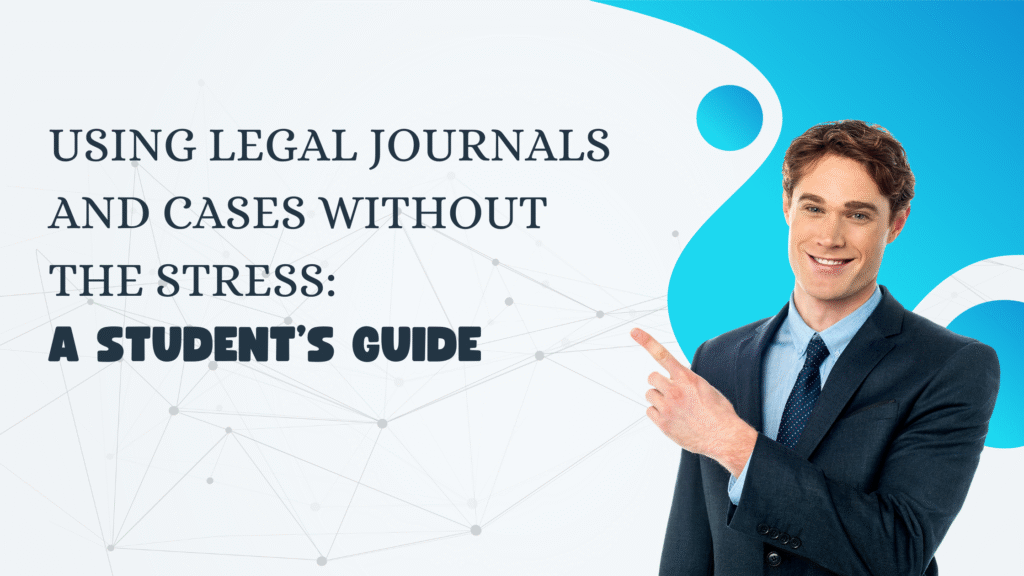Using Legal Journals and Cases Without Stress: A Student’s Guide

Whether you’re working on a legal essay, lab report, or research paper, finding and using legal journals and case law can feel overwhelming. That’s where reliable assignment help becomes a lifesaver. With smart strategies, tools, and support from assignment help, especially from trusted services like Assignment Pathway, you can confidently tackle legal research without the pressure.
Why Assignment Help Matters in Legal Research ?
Legal research isn’t just Google searches. It involves piecing together facts, laws, cases, and journal insights. Assignment help can provide structure, guidance, and feedback along the way. A good assignment help service ensures your work is well-researched, properly cited, and matches your university expectations, saving you time and stress.
Step 1: Plan Before You Dive In
Begin by clearly defining your legal issue and assignment scope. Ask:
- What legal question am I answering?
- What facts and jurisdiction apply?
- What type of sources do I need journals, articles, case law?
Getting assignment help early can help streamline this step. Tutors guide you on which journals to search and which cases are most relevant, reducing guesswork.
Step 2: Start with Peer-Reviewed Journals
Peer-reviewed legal journals help build context before diving into case law. They summarize arguments, offer critical views, and guide you toward key cases.
Step 3: Find the Right Cases
Once your theory is clear, it’s time for the primary sources court cases, statutes, and regulations. Assignment help includes lessons on using citators like Shepard’s or KeyCite to:
- Check if a case is still “good law” or has been overturned
- Identify how courts treat this precedent in later cases.
- Understanding citators helps you avoid citing outdated or questionable authority.
Step 4: Use IRAC to Organize Cases
A common legal structure is IRAC: Issue, Rule, Application, Conclusion. With assignment help, you’ll learn to:
- Clearly state the legal issue.
- Summarize the rule from your case law.
- Apply that rule to your facts.
- Draw a reasonable conclusion.
This method keeps your writing logical and aligned with academic standards and assignment help ensures you do it correctly.
Step 5: Cite Properly: No Stress
Different universities require different legal citation styles: Bluebook, OSCOLA, etc. With assignment help from Assignment Pathway, you’ll get:
- Accurate formatting examples.
- Help with punctuation, case names, journal citations.
- Peace of mind that your assignment follows your university’s exact style guidelines.
Step 6: Create an Efficient Research Process
- Using assignment help, you can establish a workflow:
- Take notes from journals and cases, highlighting key points.
- Keep a running citator log to check each source’s status later.
- Organize sources by priority, cases that are most authoritative go first.
- Review your draft with your assignment help tutor before final submission.
- This approach avoids last-minute rushes and ensures accuracy.
Step 7: Use Visual Aids to Clarify Arguments
Some legal concepts and case timelines benefit from flowcharts or diagrams. With assignment help tutoring, you’ll learn how to visualize statutes or case relationships, making your paper more understandable and engaging both for you and your reader.
Step 8: Watch Out for Common Pitfalls
- Avoid outdated or overruled cases, citators help with that.
- Don’t ignore secondary sources, law reviews provide context.
- Stay focused on one jurisdiction’s law unless instructed otherwise.
- Always check your university’s plagiarism rules and use help tools to stay compliant.
Assignment help services often review your final draft for these issues so you can submit with confidence.
Step 9: Learn During the Process
The best assignment help does more than deliver a paper, it teaches you how to:
- Search legal databases efficiently.
- Analyse and apply case law with IRAC.
- Cite properly according to your university style.
- Think like a lawyer, balancing issues, rules, and analysis.
Assignment help from Assignment Pathway emphasizes learning, not just submission, it helps you build legal writing skills for the future.
Final Tips for Stress-Free Legal Research
- Start early: allow time for research, writing, and reviewing with assignment help.
- Ask assignment help tutors for feedback on structure or reasoning.
- Compare multiple cases—don’t rely on just one source.
- Keep practicing: each brief improves your next one.
- Celebrate improvement—learning to research well is a win, too.
In Summary
Legal research doesn’t have to be stressful. With structured assignment help, especially from experts like Assignment Pathway, you can:
- Define your legal question.
- Use reputable journals for background.
- Gather case law using citators.
- Write clearly using IRAC.
- Cite accurately according to style rules.
- Get expert feedback before submission.
That’s how you use legal journals and case law effectively without stress, and with confidence. With the right assignment help, legal research becomes a skill you own not just a task to complete. By integrating these steps throughout your process and seeking consistent assignment help you’ll reduce stress, improve your grades, and learn essential legal research skills that last far beyond any assignment.
Need help at any step? Assignment Pathway’s assignment help team is ready to guide you through your next legal research project!






